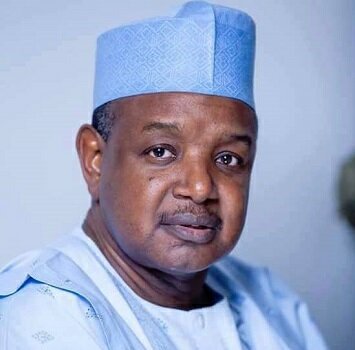By Asma’u Ahmad
The Kebbi State Government and UNICEF have signed an Annual Work Plan (AWP) to the tune of N3.87 billion for 2017 activities.
Newsmen report that the interventions would cover health, nutrition, education, sanitation and hygiene sectors. The Head of the Field Officer, Sokoto Zonal Office, Mr Mohammad Mohiuddin, disclosed this when he signed the AWP with Governor Abubakar Atiku Bagudu on Wednesday in Birnin Kebbi.
Represented by the Communication Specialist in the zone, Mrs Aye Aye Than, the field officer said the aim of the work plan was to accelerate the rights of children and women to survival, development, protection and participation.
“The programme will specifically contribute towards achieving improved access to and use of high-quality and high-impact health, nutrition, water, sanitation and hygiene interventions for children and women.
“Improved access to quality basic education by the most vulnerable boys and girls and increased school retention, completion and achievement rates for all and demand creation for services provided by the programme sector,” he said.
He said the socio-demographic and development indicator as published by some studies in the state, needed to be improved upon, adding that under-five mortality rate was 210 in every 1,000 in 2013.
Mr Mohuiddin said: “In 2015, a report indicated that 57.6 per cent of children were stunted, and 33. 2 per cent children underweight; exclusive breast feeding for zero to five months child is only 10.3 per cent in 2014. “The report also indicated that Ante natal care provided by skilled personnel was 47.7 in 2015, while assistance during delivery by skilled personnel was 15.3 per cent in 2015. For education, out of school children at primary level accounts for 69 per cent in 2012; net attendance ration at primary level was 22.3 per cent in 2015.
“Under water, sanitation and hygiene 21 per cent of the state population has access to improved water source, 55 per cent have access to non- shared improved sanitation facility and 4.9 per cent use soap for hand washing in 2014.”
Mr Mohuiddin said the socio-demographic factors stated were unacceptable as there existed proven interventions to address the challenges in each sector. According to him, the 2017 AWP, which was jointly developed by the state and UNICEF, offered opportunity in improving the indicators provided by all parties fulfilled their commitments in the work plan.
In his remarks, Governor Bagudu noted that parts of the statistics were that of children from neighbouring countries of Benin and Niger Republics. “If you go to Jega or select any local government area of the state and ask the children in the area, you hardly find a single child that is out of school,” he said and he urged the global community to begin to think on a constructive engagement between the states and field offices to guide them on how to indicate children that were out of school.
According to him, the UNICEF should partner the state, being the largest producer of rice and wheat, to evolve a framework that would support nutrition programme in the state. “We have to set our priority together in order to establish the reality in our target. If you spend N100 million counting the number of children out of school and spend zero naira on educating them, we are leaving priority towards chasing vacuum,” the governor advised.





